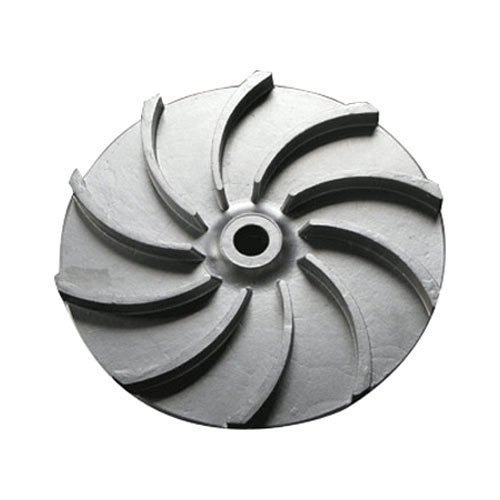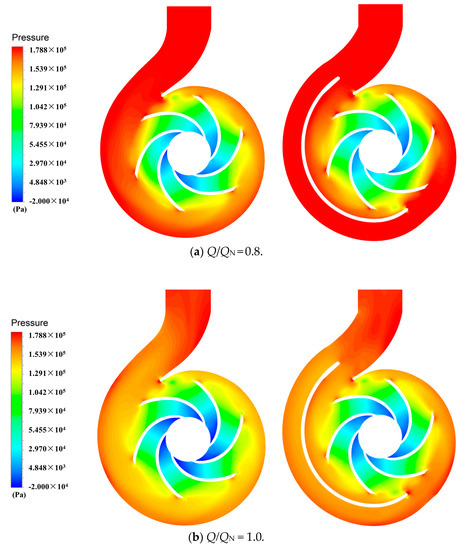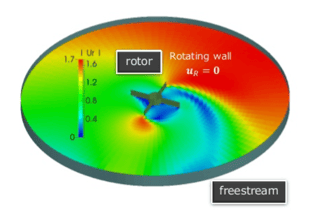Euler turbomachinery equation doesn't include a term for changes in flow area.
But, an centrifugal impeller (not the volute) has increasing flow area along the path of the flow.
Is the pressure actually constant along the path of the flow, and if not, is there an equation that could predict the change in pressure? 
(It's non trivial to deduce myself since energy is continuously added to the flow as its area expands)

